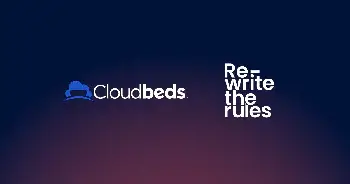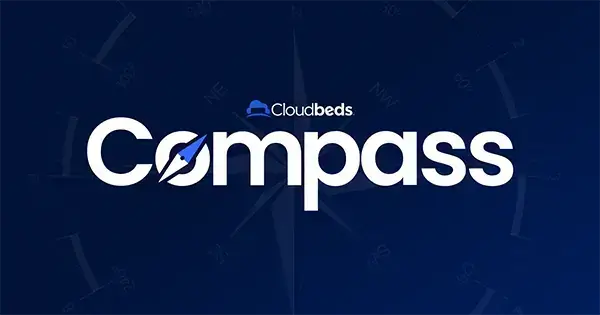
By Cloudbeds
Using a channel management system has become a virtual “must-have” for hospitality and accommodation providers of all sizes over the past decade. Large hotels have been using channel managers, or something similar, for decades, but now specialized technology to manage the online distribution of room inventory is available at an affordable cost for hoteliers and owners of even the smallest of hostels, b&bs, boutique hotels, guest houses, or vacation rentals.
By definition, channel manager software dynamically connects your inventory to multiple online travel agencies (OTAs) or online booking channels. While you could connect to multiple websites and do inventory management on your own, keeping your property’s rates and availability across all your online channels takes a lot of time and makes you prone to over-bookings and other costly mistakes.
Here, we’ll discuss why using channel manager software is the norm in the hospitality industry.
1. Automatic updates
When properties manually manage their distribution on more than one site, they are required to meticulously update availability calendars and track bookings multiple times a day. When the distribution is not updated in real-time with API automation, it increases the risk of errors. A few of the most common errors include overbookings, double bookings, reservation detail errors, and missing out on online sales (e.g., open availability was mistakenly closed).
2. Overbookings
Overbookings remain the largest threat to properties that manually manage their inventory and distribution on channel partners. When a property has more than one distribution channel and lists the same room across those channels, it becomes likely or inevitable that the same room could be booked by multiple channels.
Overbookings are bad for guests and properties. Guests will not return to a hotel after being walked and are extremely likely to leave a negative review online and on websites such as TripAdvisor. A channel management system will reduce the risk of overbookings, if not remove it completely.
3. Reservation detail errors
Manually managing inventory often means transferring reservation information from an email or extranet to a spreadsheet. When reservation details aren’t automatically transferred from the booking source (Airbnb, Vrbo, or Booking.com, for instance) to a reservation management system or property management system (PMS), there is room for error. Errors with names, dates, occupancy, check-in times, room type, or other details can easily occur. Simple errors like these can impact current room availability and future booking requests. This easily confuses both you and the guest and results in poor customer service.
4. Missed opportunities
It is easy for a property to miss booking opportunities if channels aren’t properly updated in real-time. For example, imagine a reservation cancels and another potential guest is searching for travel at the same time. That room won’t become available until you manually update that channel, which may result in a lost sale. Similarly, to manage overbookings, a property may list only part of its inventory on each sales channel, limiting the overall exposure of property availability and, therefore, conversion. A channel management solution reduces the chance of missed opportunities because the distribution system on partnership websites is automated.
5. Data-driven decisions
Managing inventory manually often means logging into the extranets of several different websites multiple times a day. Even the time spent conducting a quick 15-minute channel check can add up quickly when completed twice a day, seven days a week.
For example, imagine a short-term rental distributes its inventory on four channels. The 15 minutes it takes to check each channel becomes one hour. Assuming you check each channel twice a day every day, that quickly turns into 14 hours a week – just checking and updating channels!
While a channel management system won’t eliminate the need to manage your distribution channels, a channel manager has all the functionality needed to do it in one place.
On average, Cloudbeds saves properties 10 minutes per week per two rooms per connected channel. With that calculation, a 100-room hotel connected to 5 channels saves up to 41 hours a week. Or, a 20-room property connected to 3 channels would save 5 hours a week.
The saved labor hours move from busy work to tasks that can more positively impact your business. Instead of worrying about if reservations and availability are simply updated, you can focus on more strategic tasks like dynamic pricing strategy and distribution management.
Property managers, revenue managers, and distribution managers are highly organized people simply because it’s an essential piece of their job. But, once technology automates various processes, they can spend their time optimizing rather than organizing.
6. More distribution channels
Using an automated channel management system, properties can join more distribution channels and have more data on channel sales and booking patterns. More distribution channels means reaching more travelers, which is critical in the low season, and reaching those travelers searching for a niche product. By using OTAs, metasearch apps, global distribution systems (GDS), B2B wholesale, bed banks, or niche accommodation booking sites, you make sure you’re visible to the right type of guest.
Moreover, depending on a property’s distribution mix, you may want to withhold inventory from lower margin channels and your booking engine, or list your rooms at different prices because of price sensitivity. It’s not about distributing your inventory on every channel, but about delivering the right inventory to the right people at the right time.
7. More direct bookings
While channel managers are used to connecting to third-party distribution partners, they can also help fuel direct booking efforts. Online travel agencies (OTAs) are great for helping properties get in front of new potential guests. They offer added reach and sophisticated eCommerce marketing tactics that can help interested travelers find properties that meet their wants and needs.
A few years ago, former Expedia CEO Dara Khosrowshahi said “OTAs are a cheap source for new customers. But return guests are the most profitable if they come back to you”. A hotel channel manager can help get a property into a traveler’s mind, and then it’s up to the property to get that guest to come back and book with them directly.
Channel management opens up the opportunity for property awareness in big, small, broad, and niche marketplaces without the worry or hassle of overbookings and other mistakes that might lead to a high volume of complaints that your customer support has to handle. And, of course, there’s always the hope that a traveler finds a property on a channel but ends up on your hotel website and decides to book direct (i.e., The Billboard Effect).
Save time and eliminate overbookings
Technology continues to change the way hospitality businesses operate for the better. Channel management systems, in particular, help managers and staff save wasted time and headaches on monotonous and often tedious tasks while improving operational metrics by reducing errors and overbookings.
The Cloudbeds Hospitality Platform includes a cloud-based, user-friendly channel manager built for independent properties with connections to 300+ channels like Agoda, Airbnb, and VRBO. It offers lodging operators an ecosystem of tools to effectively run their business, including a RMS, booking engine, PMS, guest engagement solution, and more, all within a single platform.






















